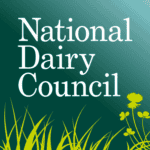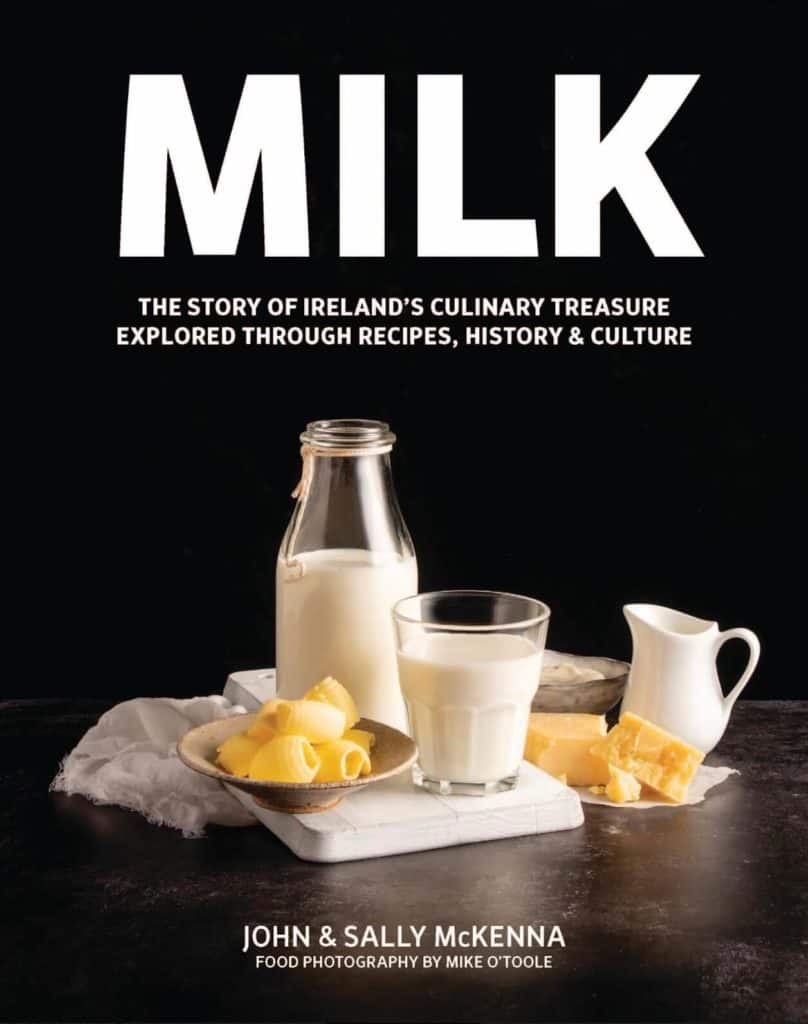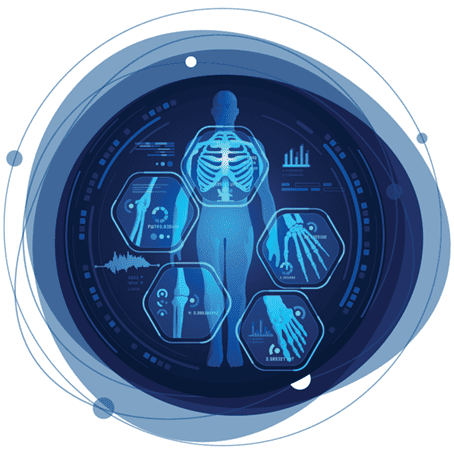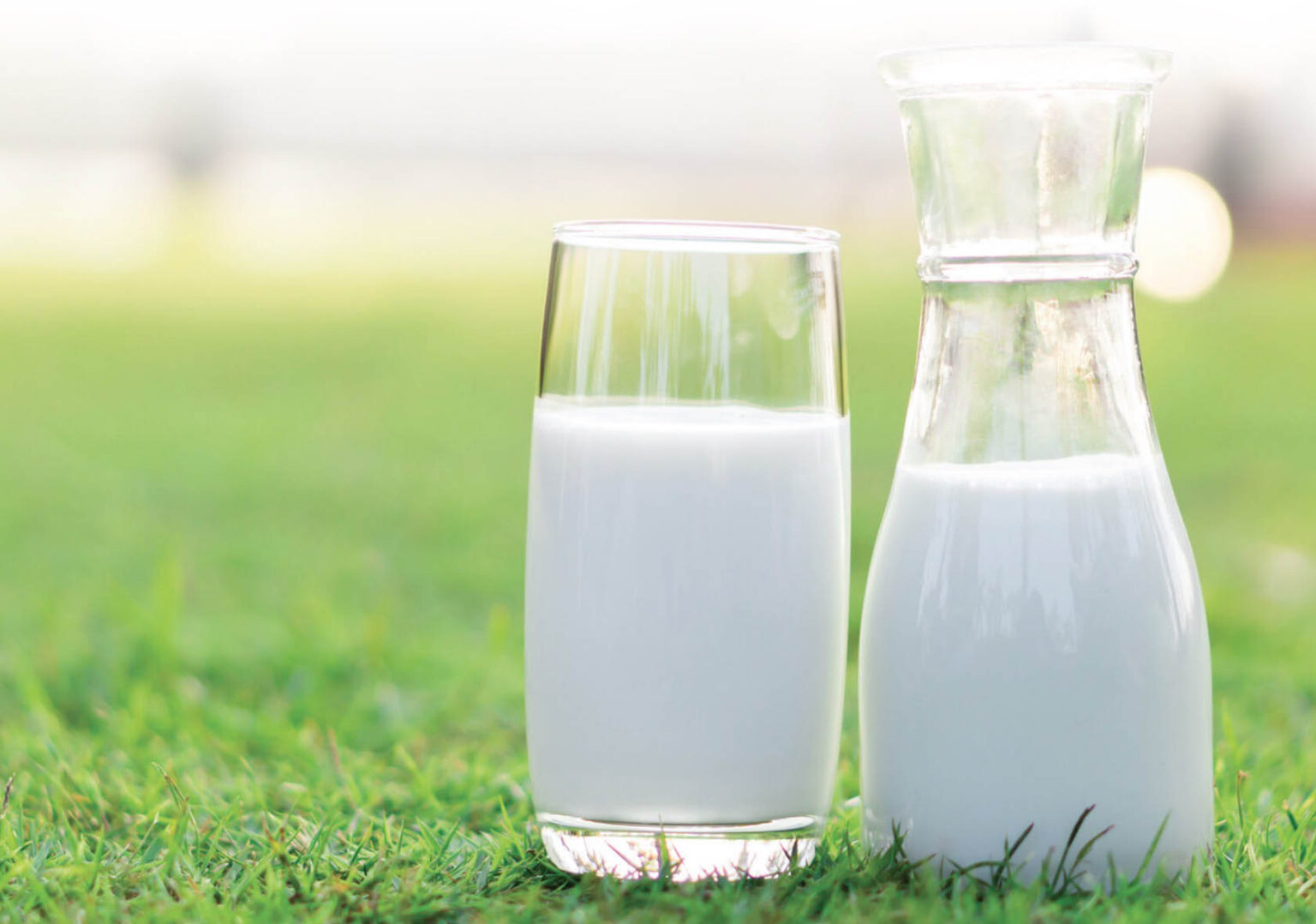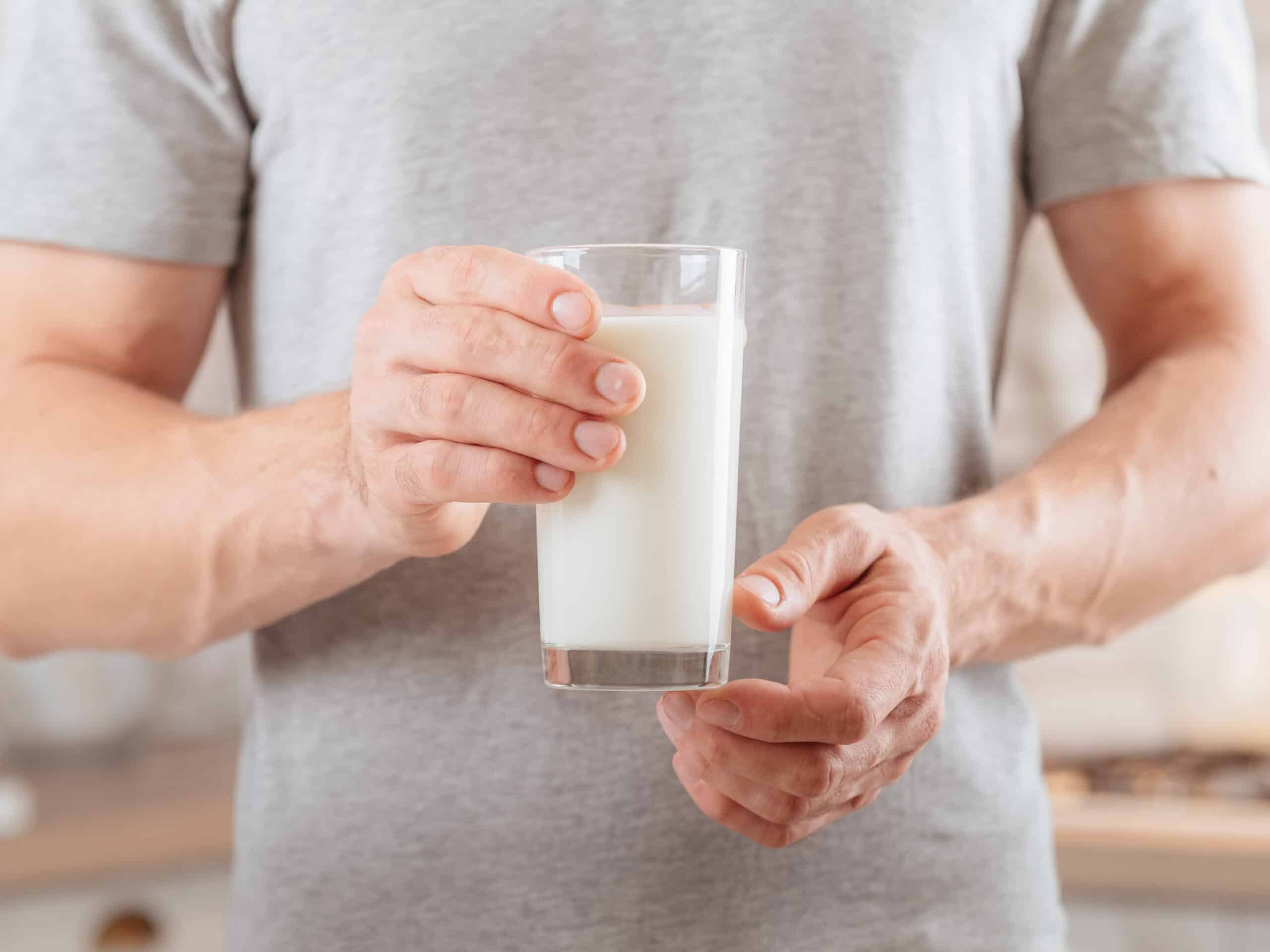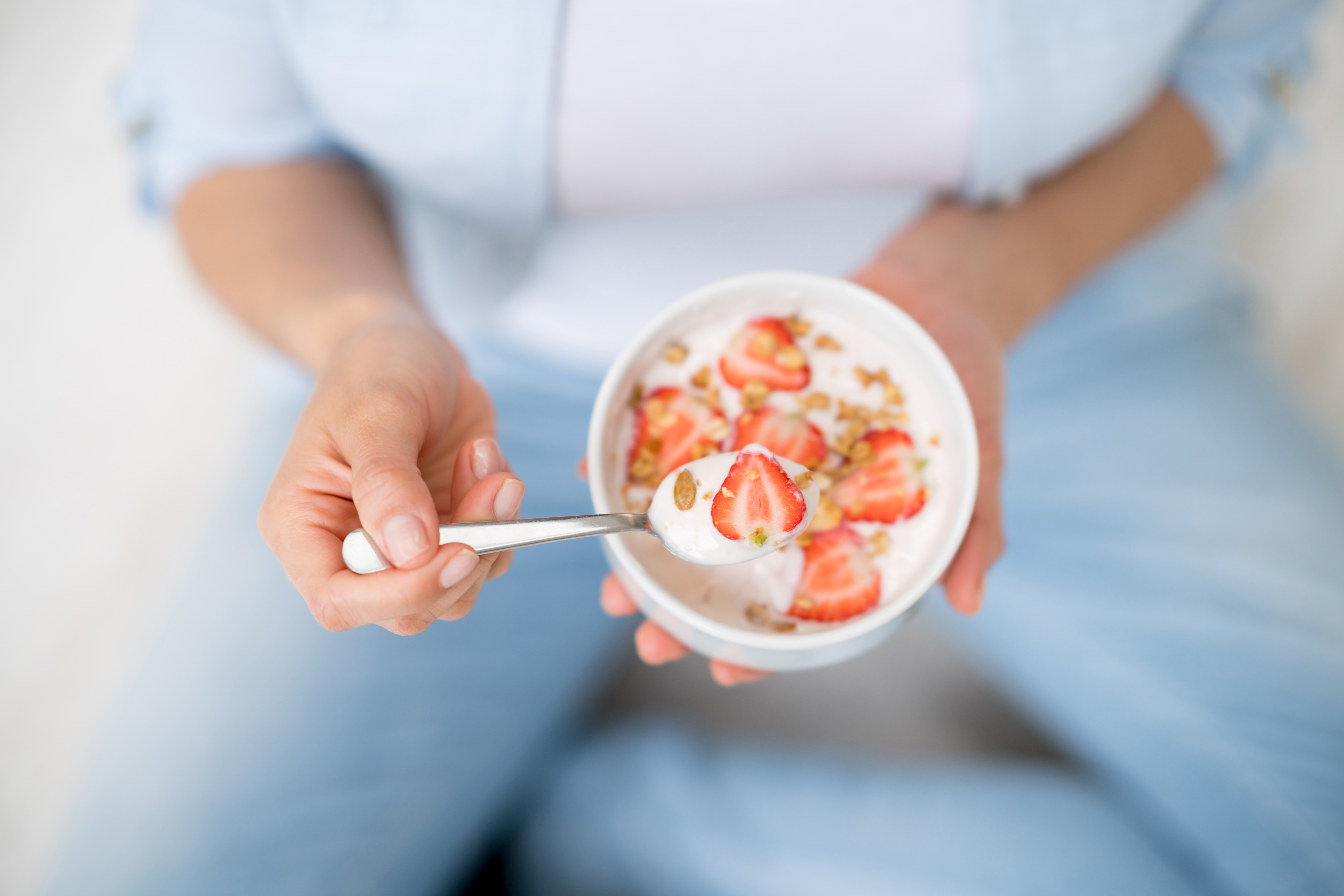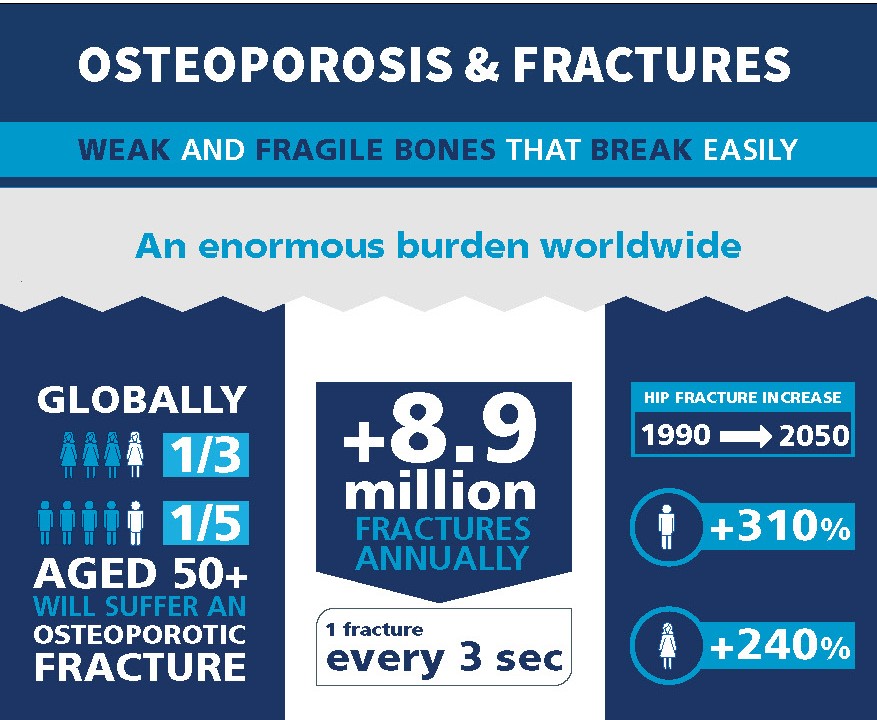“When discussing Menopause and diet it is twofold; first, we look at symptoms and second how to future-proof women’s health. There are things we can add to our diets that can help make them more nourishing” said Dietician Aveen Bannon.
The National Menopause Summit is taking place at The Aviva Stadium, Dublin on 11th & 12th April 2024. The National Dairy Council has produced a booklet on Diet and Menopause and will be exhibiting at the event.
Having a well-balanced diet is crucial during any stage of life, but during menopause, your body needs some extra patience and care. From changes in metabolism to increased risk of osteoporosis, shifting your diet can help with getting ahead of future symptoms.
Aveen said
“Calcium is essential for good bone health, particularly in Menopause. Women can experience a 20% loss of bone mass during the menopause period. As hormone levels change, we need to support our bones through nutrition. Including 3-5 calcium servings daily along with vitamin D can help support strong bones. Dietary sources of calcium include milk, yogurt, cheese, tinned fish, dark green vegetables, and almonds”
Make Lifestyle changes that last!
From the age of around 35 years, there is a gradual loss of bone which speeds up as menopause approaches so women need to pay particular attention to their bones. Many nutrients play an important role in bone health including protein, calcium, phosphorous all of which are found in the dairy matrix in milk, yoghurt, and cheese.
Dr Patricia Heavey from the Department of Sport & Health Sciences at TUS in Athlone carried out research with over 850 Irish women and found that 80% of women report weight changes during the menopause transition.
Is weight gain normal during menopause?
“While weight gain is not inevitable, peri-menopause is associated with redistribution of fat to the tummy area,” explains Dr Heavey. “Tiredness from disturbed sleep and other menopausal symptoms like stiff joints may result in less exercise/activity which can also lead to weight gain. Menopause often coincides with greater responsibilities both at home and work which can mean exercise, eating well or managing stress take lower priority, promoting further weight gain.
There is some evidence that reducing weight, if you are overweight can help with some symptoms like hot flushes and night sweats but longer term maintaining a healthy weight will also support heart health too.”
In terms of exercise the research showed that 47% of women engaged in moderate physical activity almost daily with 30% engaging at least three times a week. Walking was the most frequently preferred form of exercise at 79%.
Aveen says
“Keep moving! Activity helps to manage weight and is also imperative for heart and bone health. Weight-bearing exercise helps your bones to hold on to the minerals that keep them strong and reduces the risk of osteoporosis. Aim to include some lean protein at each meal. Protein is necessary for both the maintenance and repair of muscle and bone, and we need more as we age. Dairy, fish, poultry, eggs, meat, tofu, and tempeh are all great nutritious dietary sources of protein.”
Managing Symptoms
Taking time to consider whether there are improvements you can make to diet, exercise, and other factors such as quitting smoking or excessive alcohol intake may help you manage some symptoms but also help protect you from type 2 diabetes, heart disease and osteoporosis. As about a third of a woman’s life is spent in post-menopause, it is good to make changes that will last.
Dr Heavey said
“Our research showed that in the menopausal symptomatic group, 59% of women experienced 13 or more symptoms, with the most commonly reported symptoms being hot flushes, affecting 92% of women, low sex drive, affecting 89% of women and night sweats, affecting 87% of women.”
Top Tips for eating well during the menopause
- Aim to include a minimum of five fruits and vegetables every day and choose from as wide a range as you can. Eat the rainbow! Remember canned and frozen vegetables count!
- Watch your portions – using a smaller plate or bowl can help.
- Milk, cheese, and yogurt provides a matrix of nutrients including protein, calcium and phosphorous which are needed to help maintain normal bones. Choose reduced-fat versions where possible to help manage energy intake. •
- Aim for at least two portions of oily fish every week. Oily fish includes tinned sardines, mackerel, salmon, fresh tuna, trout, and herring
- Don’t confuse snacks with treats! A snack is something that offers nutrition and part of a healthy diet e.g. yogurt, fruit, or nuts. A treat might taste nice but may or may not offer nutrition but can be high in calories. Take note of how often you are including treats that are high in fat and sugar in your diet. Most of us forget the treats we ‘graze’ as snacks so it might surprise you. Replace crisps, pastries, cakes and biscuits with fruit, small cubes of cheese, low fat yogurt or vegetables and houmous which provide tasty but nutritious snacks.
- Use oils and fats that are high in unsaturated fat such as rapeseed, sunflower, and olive oils/spreads. Use yogurt in place of mayonnaise for sandwich fillers.
The National Dairy Council Nutritionists will have a stand at this year’s National Menopause Summit taking place at the Aviva Stadium in Dublin 11 & 12th April 2024. To download a copy of the NDC Diet and Menopause booklet please visit https://ndc.ie/our-publications/.
For further information please visit www.nationalmenopausesummit.com.
